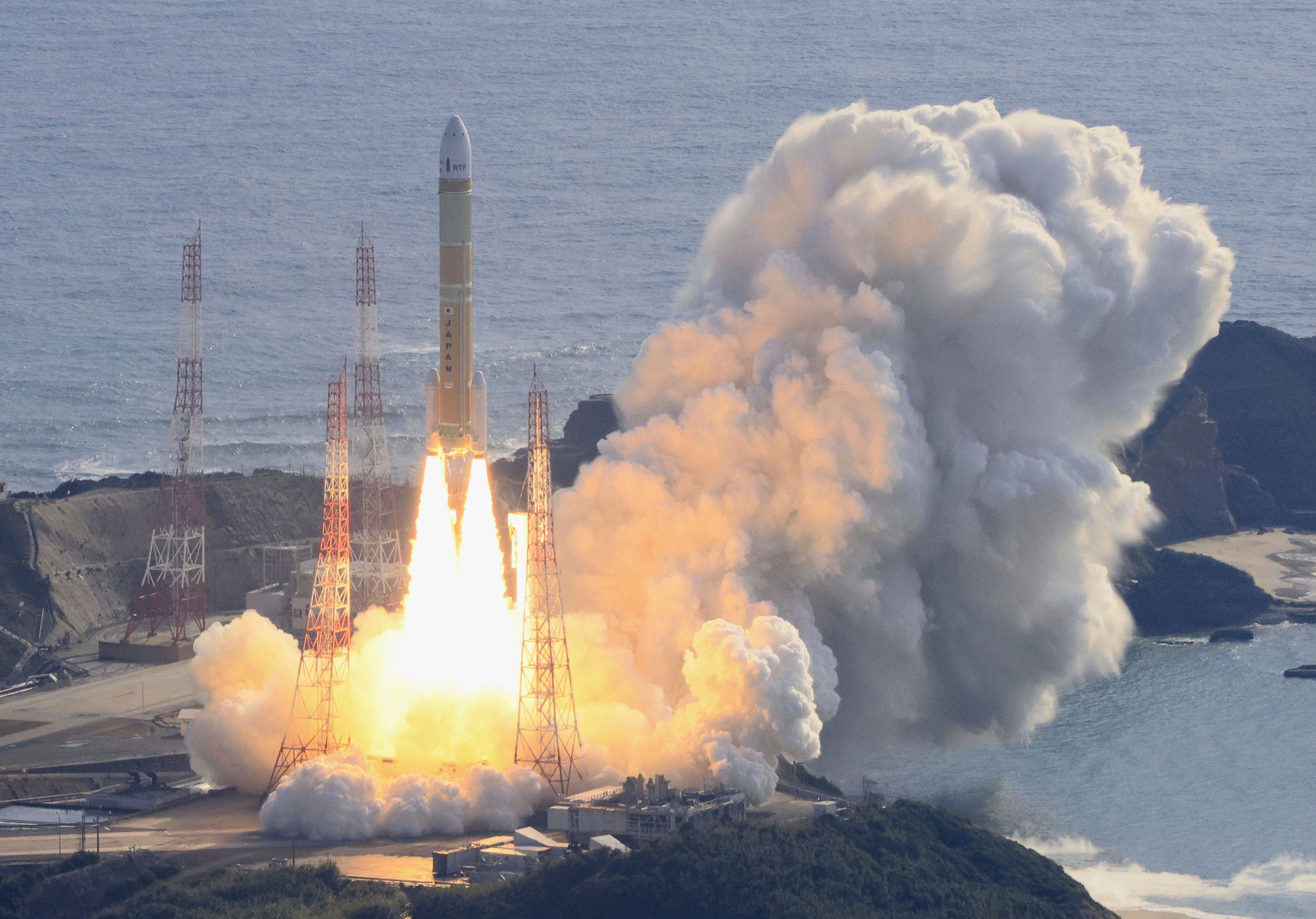Japan’s space agency successfully launches new H3 rocket after failure last year
This was Japan’s second attempt at launching the flagship rocket after the first flight self-destructed last year

Japan’s second attempt to launch its flagship H3 rocket, a cutting-edge and cost-effective space vehicle, has been successful, giving a significant boost to its space programme.
The rocket lifted off from a launch pad at the Tanegashima Space Centre at 9.22am Tokyo time (00.22 GMT) on Saturday after a delay of two days due to unfavourable weather conditions.
Just as the rocket lifted off, scientists erupted in celebrations, hugging each other and lauding the successful launch.
The rocket’s initial flight has been smooth with its engine properly working, the Japan Aerospace Exploration Agency, or JAXA, said in its live streaming.
The rocket has released one micro-satellite and was due to release another, with a dummy satellite set to be released two hours after liftoff.
This was Japan’s second attempt at launching the flagship rocket after the first flight self-destructed last year as its second-stage engine failed to ignite.
With the new launch, Japan intends to replace the two-decade-old H-IIA which was set to retire after two more flights, with the newer and more cost-efficient model.
The rocket gives Japan’s space programme a significant boost as it’s equipped with a heavier payload capacity and is significantly cheaper, giving it an advantage with launch orders from global clients.
Developed by JAXA and its primary contractor Mitsubishi Heavy Industries, the H3 rocket, almost 300ft long, can carry 6.5 metric ton payload into space and reduce the per-launch cost to as low as 5bn yen (£23m).
The demand for affordable satellite launches is increasing with more and more satellites being used in various areas like communication, meteorology and Earth sciences. Commercial companies like SpaceX have already disrupted the market and it is expected to grow by 210 per cent by 2029.
In 2023, a record-high number of 2,917 satellites successfully orbited the Earth.
The launch comes after Japan became the fifth country to soft-land on the moon using precision technology that allowed it to touch down closer to its target landing site than any mission has before.
Join our commenting forum
Join thought-provoking conversations, follow other Independent readers and see their replies
Comments
Bookmark popover
Removed from bookmarks